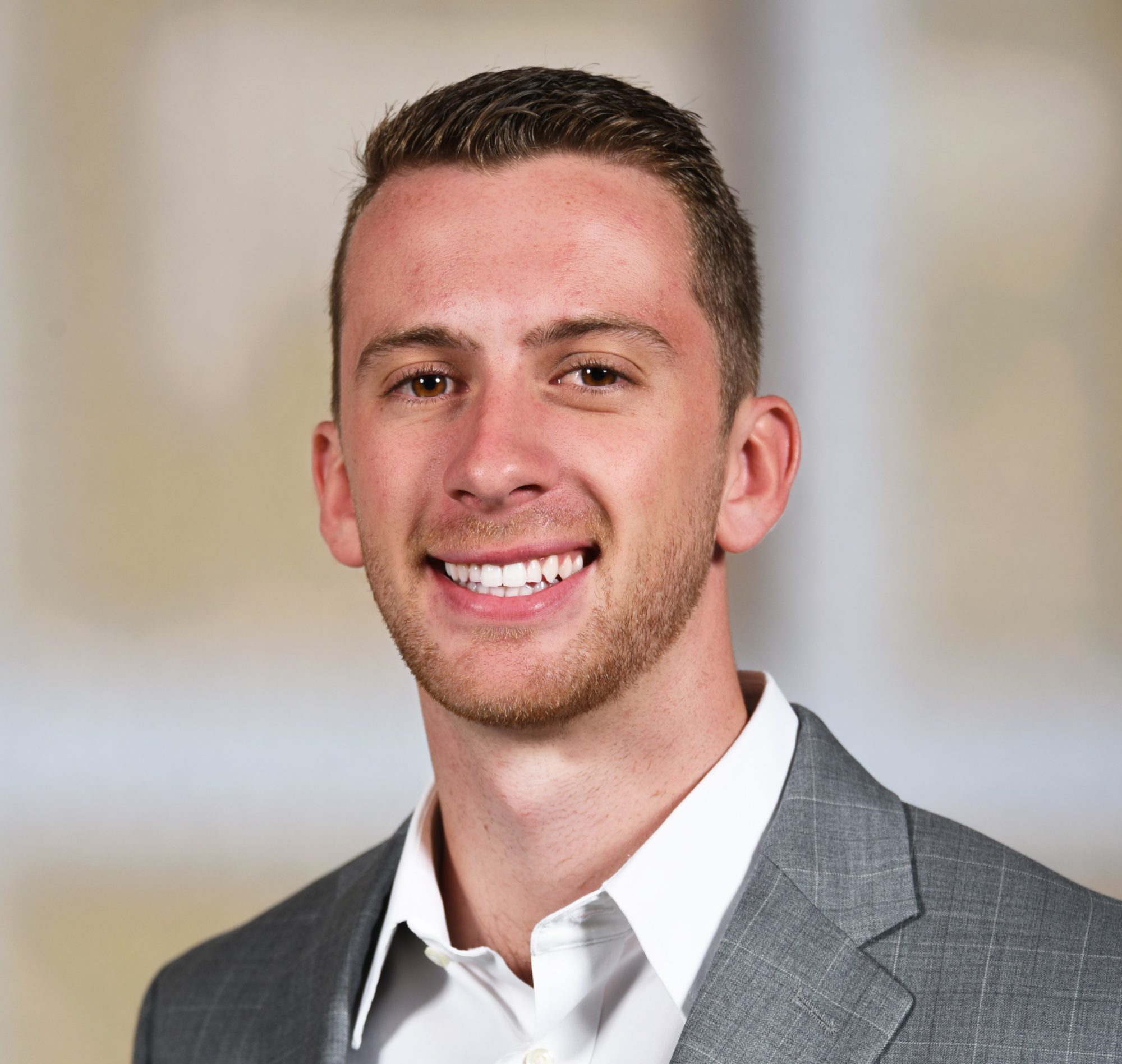
The term ‘virtual reality’ conjures images of futuristic excitement. We may think of video games made more intense and exhilarating by the feeling of existing inside them, fun-packed events such as concerts or festivals made possible to attend from a remote location, or electrifying experiences such as skydiving or rock climbing experienced without the price or risk. Virtual reality tends to be defined or thought of only within the context of entertainment. It’s lumped into the same category as television, video games, and smartphone apps. We certainly don’t spend our time imagining it as a technology that can be used in the healthcare space to help or heal, as a collaborative diagnostic or therapeutic tool. Now, more than ever, that is exactly what it needs to be. Virtual reality has the capacity to make a significant impact in the medical field at a particularly challenging time.
James Carver ’20, dueling in finance in the Martin J. Whitman School of Management, and Public Relations in the S.I. Newhouse School of Public Communications, is committed to developing virtual reality for the enterprise health case industry. He’s the head of business development at Visos, a company working to develop virtual reality headsets for use in the medical field.
“I’ve always loved the applications you can have of virtual reality in consumers in business, in society in its entirety. However, the current headsets, like the Oculus, are all consumer focused. Medical firms are using those, but their business model just doesn’t work because it’s consumer focused.”
Visos is working to change the status quo of virtual reality as a consumer-based product and expand its use of technology in new fields. Their virtual reality headsets, tailored for medical use, differ from the ones in the markets in both software and hardware. The hardware is tailored to fit different head sizes and is constructed to be easily cleanable. The software, unlike a typical headset which is controlled individually, links a multitude of headsets together so virtual reality content can be uploaded to all of them at once through a management platform. This makes it simpler for use in the medical field, where doctors don’t have time to upload content for each individual person and their headset.
The presence of virtual reality in healthcare can transform current methodologies of treatment. It can be used to in treating post-traumatic stress disorder, in physical therapy, pain management, anxiety management, or palliative care. Virtual reality has actually been shown in numerous case studies to stimulate the same type of neurons in the brain as opioids. “Visual stimulation with no drugs can stimulate the same things as if you’re taking an opioid, which shows how dramatic an impact this technology can have on people’s lives. You run the risk of becoming addicted to opioids, but this alleviates that problem entirely. “In a healthcare system where the opioid epidemic has skyrocketed, drug-free treatment can play a positive role in lessening the crisis.

Carver first started working on Visos just this past year in early fall. He first was introduced to the company when he stumbled across a post about a virtual-reality startup venture at Syracuse and was intrigued; having always been curious about the possibilities and capacities of virtual reality. He reached out to Matt Schumer, founder of the company, who was building the company out of the Blackstone LaunchPad powered by Techstars at Syracuse University. They began working together on their mission to bring virtual reality to new fields. Carver’s passion for the implication of virtual reality to transform lives is apparent in his work. “It can save people’s lives. It makes working on this project that much more important because you can see the impact that it has and so that makes it much more enjoyable. You’re working not for profit or to build a company but also to help people’s lives.”
The difficulty of expanding a fairly new technology into a completely different field requires significant drive and perseverance. Carver understands the level of persistence required in entrepreneurship and is committed to working on this company despite the inevitable setbacks and failures that arise. “Especially in a startup at this stage one email can change absolutely everything. You have to have that resiliency and say, ‘Ok this didn’t work out, now what? How am I going to make this next thing work out?’” Visos, though a new company, has tremendous potential to make a powerful impact in healthcare and Carver is someone working resolutely to see that potential turn into reality.
Earlier this year, Carver had the opportunity to attend the Consumer Electronics Show (CES) in Las Vegas, sponsored by the LaunchPad. Visos was one of a small group of startups chosen by the global LaunchPad network to be part of the Techstars Startup Stage. Attending CES 2020, with the next generation of startups building the future of robotics and hardware, sports and entertainment, only left him more energized about the possibilities for Visos. He and Shumer are working closely with the LaunchPad on their commercialization roadmap, pitching to investors, and building the team to make this a reality.
As Carver and Visos redefine VR, they are doing it with clear vision, feet firmly planted in the real world, while unlocking an entire virtual world that can unleash possibilities for all of us.
Story by Blackstone LaunchPad Global Media Fellow Claire Howard ’23 Submitted photos